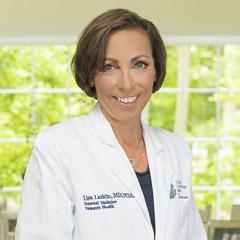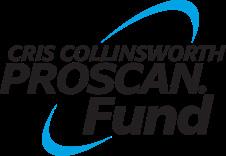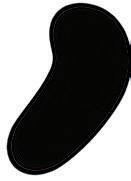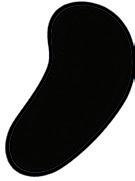Awareness Matters
Did you know that lifestyle choices can affect your risk of getting breast cancer?

$23,228 $28,142

Did you know that lifestyle choices can affect your risk of getting breast cancer?

$23,228 $28,142
At HORAN, our mission is to help employers provide a better quality of life for employees and their families. This mission drives our investment in the HORAN Financial Analyst think tank. The think tank is fueled by the team’s ability to analyze claims data to guide clients and drive action, we call this HORANalytics®. Recently, our Financial Analysts concluded that breast cancer claimants who did not get a mammogram cost the health plan $4,914 (or 21.2%) more than those who did get a mammogram. HORAN is a strong advocate of mammogram screenings in an effort to better employees’ quality of life and improve health plans.
To underscore these findings, HORAN interviewed Lisa Larkin, MD, FACP, NCMP, IF, (pictured right) a board-certified internist practicing internal medicine since 1991. She is the owner and President of Lisa Larkin, MD, and Associates, an independent, multispecialty practice offering direct and concierge primary care. Larkin is a breast cancer survivor and frequently lectures on women’s health topics, writes articles for community publications and appears on local news outlets to discuss women’s health issues. Through her research, Larkin has shed light on specific factors that impact a woman’s risk for breast cancer including lifestyle choices.
Q: HOW DID YOU BECOME INTERESTED IN BREAST CANCER RESEARCH?
LISA LARKIN (LL): As a physician who has practiced internal medicine for 27 years and a breast cancer survivor, I am an advocate for research and innovation in women’s health. From young adulthood, women worry about their risk of developing breast cancer; we understand that just by being female, we are at risk. Most of us know the statistic, “1 in 8,” or 12% of women will develop breast cancer over the course of their lifetime. What some don’t know is that many women are actually at much higher risk of developing breast cancer than the 12% risk of the general population, they just don’t know it. The question I ask myself is, “how can we do better about educating women about their individual risk?”
Q: WHAT ARE THE COMMON MISCONCEPTIONS AROUND BREAST CANCER THAT YOU EXPERIENCE?
People are focused on the fact that we need to get our annual mammograms. They are very important and a necessary part of preventive screening, but they can’t be the only thing we rely on because they aren’t perfect. If you look at 1,000 women, they all have a different
risk when it comes to breast cancer, but we are screening them the same way. I want to change the conversation and give women a more personalized approach to breast cancer risk analysis with an emphasis on precision medicine (tailoring treatment to the individual characteristics of each patient).


Q: CAN YOU TALK ABOUT THE RESEARCH YOU HAVE CONDUCTED REGARDING HOW LIFESTYLE CHOICES IMPACT BREAST CANCER RISK?
Most women understand if they have hypertension (high blood pressure) and high cholesterol that their risk of cardiovascular disease is elevated. Breast cancer works the same way. If you have certain risk factors, you have an increased risk of getting it. It’s not hard and fast that you are going to get breast cancer, but it is a marker for increased risk. I developed a breast cancer risk assessment and prevention program for women using readily available validated risk assessment models that incorporate reproductive data, biometrics, menopause status, breast density, family history and lifestyle choices. As a part of the program, I take an individual’s information and put it into the algorithms using the results to guide recommendations for each woman.
Q: WHAT LIFESTYLE FACTORS ARE LINKED TO AN INCREASED RISK OF BREAST CANCER?
We believe 30% of breast cancers are lifestyle related. Not all breast cancer can be prevented but we can definitely make a difference. Prevention considerations include: maintaining a healthy body mass index (BMI), not drinking too much alcohol (no more than three drinks a week), eating a plant-based diet and exercising three times a week.
Q: HOW ARE YOU SHARING THE BREAST CANCER RISK ASSESSMENT WITH THE PUBLIC?
I hold events for employers looking to inform and educate their employees on breast cancer awareness and prevention. Prior to the event, I send the attendees an electronic version of the breast cancer risk assessment and provide them with a results packet the day of the event which includes their risk score, how the score was calculated and recommendations based on their data. I also make specific recommendations based on their risk such as if they should see a genetic counselor to consider genetic testing or if they meet criteria for an expanded screening with a Breast MRI. The report is educational only and intended to be shared with their doctor to make informed decisions on how to move forward.
Q: WHAT WAS THE MOST SURPRISING FINDING IN YOUR RESEARCH?
The most surprising part of all of this is the magnitude of women who underestimate their risk and the unawareness of the importance of lifestyle in prevention. I ask the women who attend my events if they think their risk of breast cancer is higher, lower or the same as the national population’s risk (12% risk of breast cancer) and 57% of the women think their risk is lower when in fact their report data came back showing that their risk was higher.


The Cris Collinsworth ProScan Fund (CCPF) is a non-profit organization founded in 2002 with the mission to improve women’s health through their Pink Ribbon Programs.
The Pink Ribbon Programs began with a passion to raise the bar for women’s health, particularly in mammography. Now operating three free-standing women’s imaging centers and offering six Pink Ribbon Programs, CCPF has served tens of thousands of women throughout the region and provided support for breast cancer patients around the country through their Pink Ribbon Bag Program.
The ProScan Pink Ribbon Centers offer some of the newest technology available for breast cancer screening, including tomosynthesis, which is a 3D mammogram that provides more clarity for increasing cancer detection rates, especially in a dense breasted woman.
Additionally, CCPF offers the Breast MRI Program to allow women with dense breasts to get additional necessary screening. Utilizing a Breast MRI in a screening capacity is a huge benefit to women with dense breasts and those with a family history of breast cancer.

Below are services you can offer employees to promote early detection and ways you can support women and men who are diagnosed with breast cancer.
Bring a mammography van to your office(s). Most health care systems provide mammogram vans and the scheduling process is simple. Contact your provider of choice to determine scheduling requirements, availability and costs. The following link is a map containing regional mammography screening sites. Share the link with your employees to make it easy for them to find sites nearby: http://bit.ly/ScreeningLocations
Dr. Lisa Larkin, owner and President of Lisa Larkin, MD, and Associates, hosts workplace education sessions for employers looking to inform their employees about their risk of breast cancer. Attendees receive a results packet with their individual risk score as well as specific recommendations based on their data. More information can be found at http://lisalarkinmd.com
Provide emotional support to employees and their spouses who are undergoing treatment by sharing counseling resources, creating a survivorship support group and referring them to your Employee Assistance Program if available.






INVOLVED
Visit the Breast Cancer Research Foundation (www.bcrf.org) or Susan G. Komen (ww5.komen.org) to learn how your organization can join the fight against breast cancer.
For more information on how you can support breast cancer awareness and promote early detection with your employees, contact a HORAN representative at 800.544.8306.